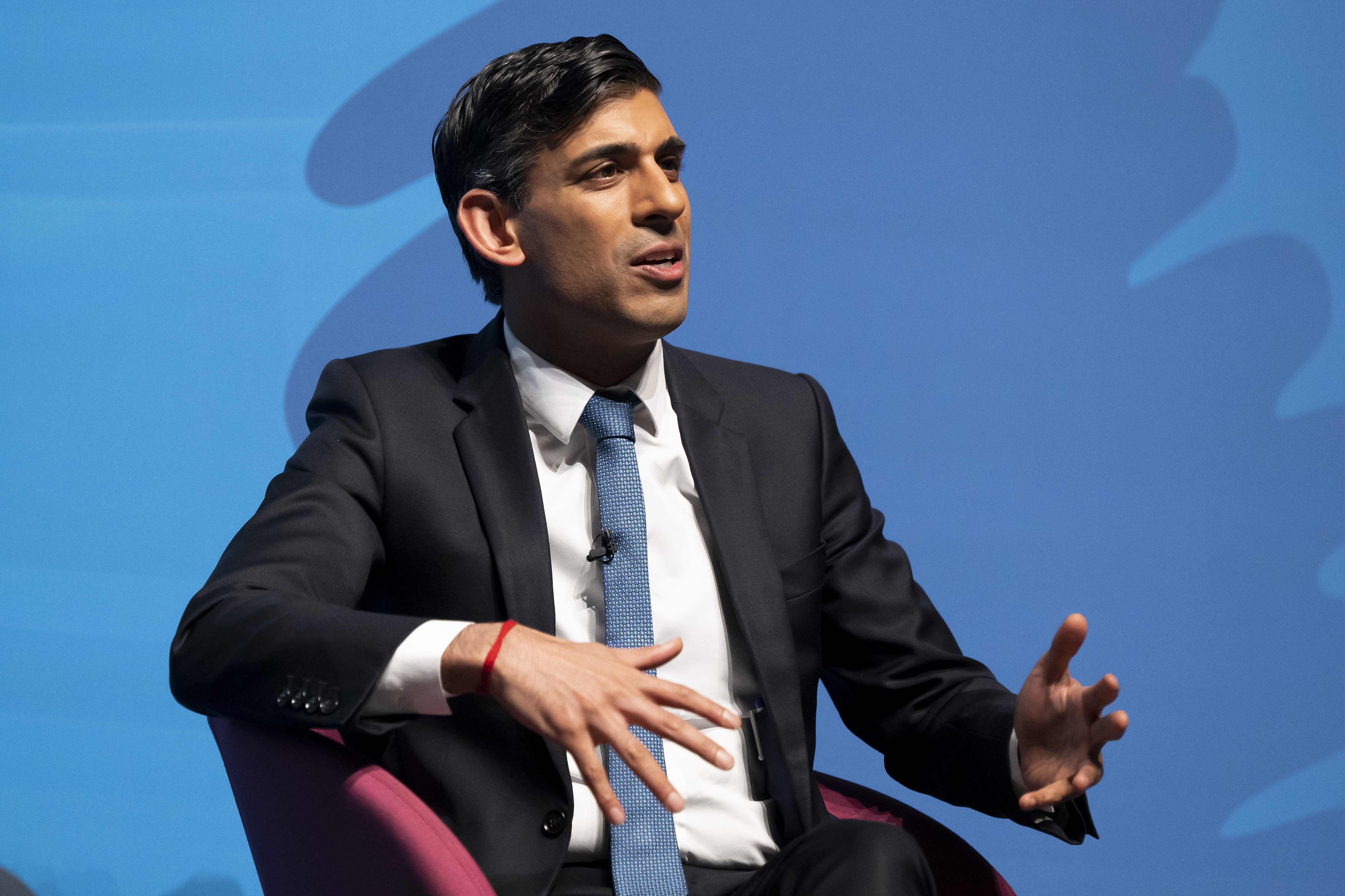When should startups hire their first CTO?
Hiring a senior tech leader is a big event in the life of any start-up, but when is the right time? And what’s the right approach?

This article originally appeared in issue 20 of IT Pro 20/20, available here. To sign up to receive each new issue in your inbox, click here
Hiring a chief technology officer (CTO) is a massive milestone in any startup’s journey. But it can also prove to be an expensive one, fraught with difficulties and challenges.
With senior and experienced tech talent increasingly scarce or expensive, and with many startup founders coming from a non-technical background, the search for a dedicated CTO is often hard to navigate. Even simply drawing up a strong shortlist can prove tricky.
Some experts suggest the right time for a CTO hire is at seed or Series A funding stage, while others say it should be done from the very start. There is also a train of thought that believes hiring a part-time or temporary one for a specific project or rollout is the right thing to do.
FanFinders, a marketing company which launched in 2012 and connects brands with parents, hired its first CTO after four years. “I knew bringing someone in-house was the solution because prior to this we had outsourced,” according to the firm’s co-founder, Alec Dobbie.
“The reality is you need that person to be immersed in the business day-to-day to really head up your IT,” he says. “When you have someone external, they might be technically sound but you’re still missing that investment in the wider business strategy and, to a certain extent, it’s impossible for them to commit at the level required.”
Dobbie adds: “As a co-founder, you’re essentially handing the keys over to this person to head up a crucial part of your business, so there needs to be trust as a priority.”
Get the ITPro daily newsletter
Sign up today and you will receive a free copy of our Future Focus 2025 report - the leading guidance on AI, cybersecurity and other IT challenges as per 700+ senior executives
Acknowledging the fact that most startups are slightly constrained financially so can’t necessarily get the top talent right away, Dobbie recommends two possible options. The first being to hire someone with potential into a more junior role to see if they are capable of evolving into what you need over time. The second option is to sell prospective hires on the fact it is them that is in control of their career destiny and impact at your firm, according to Dobbie.
“It should be exciting for any technologist to be able to make those big, defining decisions and operate on a green field,” he explains.
Experience matched to specific needs
FanFinders’ eventual CTO hire was Paul Gwynn, who told us that it’s crucial for any new CTO to have established credentials and a proven track record for having driven similar goals.
“If a key part of delivering against strategy is hiring a CTO, then a startup needs to hire someone that has experience of going through a similar process. They should have been successful in building infrastructure to deliver against business plans and those plans could be software, hardware or elements like staffing. It’s about the complete picture,” Gwynn says.
But he warns: “In the past, I’ve seen CTOs come in and put in a number of inferior procedures where there were already solid ones just for the sake of putting down a marker, creating conflict in the process and demoralising the team.”
Finding the right co-founder for your tech startup
Leaving it too late can also be an issue. Indeed, Robin Beattie, managing director of Spinks, a specialist startup and scale-up recruiting arm of Harvey Nash Group, says that many founders end up doing this as they find it hard to let go.
“Often, founders/owners don’t feel they need a CTO because they’re technical experts themselves and know their own business inside out. They don’t have a team of 30-40 technical people and don’t have large-scale architecture - they think they can still manage everything themselves,” Beattie says.
“But it gets harder as the business begins to scale.”
A full-time CTO isn’t always the answer
RELATED RESOURCE

New technology projection: The Total Economic Impact™ of Anthos
Projected business benefits and cost savings enabled by Anthos
A so-called fractional CTO - someone who works 2-3 days a week or even a month - is one solution suggested by Spinks, while other experts offer the idea of an interim CTO to get an understanding for what can be achieved in the early days, or to drive forward a specific project.
Talking of interim CTOs, Heather Abbott, of AKF Partners, often fills the gap for smaller organisations who are unable or unsure about hiring a dedicated CTO but need input and leadership at this level.
“Interim CTOs can help bring in external experience or validation for new approaches to key priorities and challenges. As such, an interim CTO is often brought in when a significant threat arises to help troubleshoot the problem and to make potentially difficult calls and changes to fix the issue, getting the tech team back on track to success,” she says.
“Being a temporary outsider can make it easier to objectively dive into issues and to make fair but perhaps hard decisions, particularly when it comes to sensitive areas, such as organisational and team structures.”
Abbott adds: “The temporary nature of the assignment can be effectively used to create more of a sense of urgency on key priorities. Still, it’s vital to always think carefully about any projects that would be better to be delayed until the full-time candidate is on-board.”
Before you even start the hiring process, it’s important to think about not just what you need for now or the short term, but the sort of skills and experience you’ll also require two or three years down the line, according to Abbott.
“Make a prioritised list of the most important capabilities, skills, and aptitudes of your CTO. Most importantly, as well as having the technical knowledge and know-how, can the candidate translate that tech speak into the language of business? Can they transfer the technology strategy onto a wider product and company strategy and vision?” she says.
"One of the top reasons for CTO turnover is a lack of business acumen and these kinds of competencies should be highlighted in any job description.”
Alan Baldwin, an ex-police officer, admits it was tough for his startup Practice to Progress to find its first CTO, as he felt the company was then "largely made up of less tech-savvy people."
The company, founded in 2019, helps anyone, whatever rank and role, to join the police service or reach their career goals within policing, regardless of background.
Baldwin’s brother James eventually filled his CTO role, but he advises that you should think about what your business might need from technology prior to your recruitment search.
“It’s easy to assume you know what the CTO does, but very often in a startup there are nuances to take into consideration,” he says. “Look for someone that wants to understand your business, not just the technology.”
While it’s clear that there is no one-size-fits-all approach to when or how startups should hire their first CTO, there are definitely common areas that all firms - large or small - need to be thinking about well in advance of any recruitment efforts. And, as importantly, this deep consideration about what their business needs and the best people to help turn those goals from theory into reality shouldn’t stop at a job offer.
Jonathan Weinberg is a freelance journalist and writer who specialises in technology and business, with a particular interest in the social and economic impact on the future of work and wider society. His passion is for telling stories that show how technology and digital improves our lives for the better, while keeping one eye on the emerging security and privacy dangers. A former national newspaper technology, gadgets and gaming editor for a decade, Jonathan has been bylined in national, consumer and trade publications across print and online, in the UK and the US.
-
 Bigger salaries, more burnout: Is the CISO role in crisis?
Bigger salaries, more burnout: Is the CISO role in crisis?In-depth CISOs are more stressed than ever before – but why is this and what can be done?
By Kate O'Flaherty Published
-
 Cheap cyber crime kits can be bought on the dark web for less than $25
Cheap cyber crime kits can be bought on the dark web for less than $25News Research from NordVPN shows phishing kits are now widely available on the dark web and via messaging apps like Telegram, and are often selling for less than $25.
By Emma Woollacott Published
-
 Is Rishi Sunak’s ‘Unicorn Kingdom’ a reachable goal or a mere pipedream?
Is Rishi Sunak’s ‘Unicorn Kingdom’ a reachable goal or a mere pipedream?Analysis Plunging venture capital investment and warnings over high-growth company support raise doubts over the ‘Unicorn Kingdom’ ambition
By Ross Kelly Published
-
 Some Tech Nation programs could continue after Founders Forum acquisition
Some Tech Nation programs could continue after Founders Forum acquisitionNews The acquisition brings to a close a months-long saga over what the future holds for Tech Nation initiatives
By Ross Kelly Published
-
 Podcast transcript: Startup succession: From Tech Nation to Eagle Labs
Podcast transcript: Startup succession: From Tech Nation to Eagle LabsIT Pro Podcast Read the full transcript for this episode of the ITPro Podcast
By Rory Bathgate Published
-
 The ITPro Podcast: Startup succession: From Tech Nation to Eagle Labs
The ITPro Podcast: Startup succession: From Tech Nation to Eagle LabsITPro Podcast Some small firms are already lamenting the loss of Tech Nation, but Barclays Eagle Labs has much to offer the sector
By Rory Bathgate Published
-
 Don’t count Barclays Eagle Labs out just yet – it can deliver in ways Tech Nation never has
Don’t count Barclays Eagle Labs out just yet – it can deliver in ways Tech Nation never hasOpinion Tech Nation has a great track record, but Eagle Labs has the experience, the financial clout, and a clear-cut vision that will deliver positive results for UK tech
By Ross Kelly Published
-
 UK tech sector could face a ‘unicorn winter’ amid spiralling economic conditions
UK tech sector could face a ‘unicorn winter’ amid spiralling economic conditionsNews Tech Nation’s final piece of industry research calls for action to support continued ecosystem growth
By Ross Kelly Published
-
 "It's still not great": Industry divided on government's SMB tax relief package
"It's still not great": Industry divided on government's SMB tax relief packageNews The government’s handling of R&D tax credits has left SMBs with a “sense of disbelief”
By Ross Kelly Published
-
 UK startup's Equinix deal marks step towards broad quantum computing access
UK startup's Equinix deal marks step towards broad quantum computing accessNews Businesses around the world will be able to use its quantum computing as a service platform through Equinix
By Zach Marzouk Published